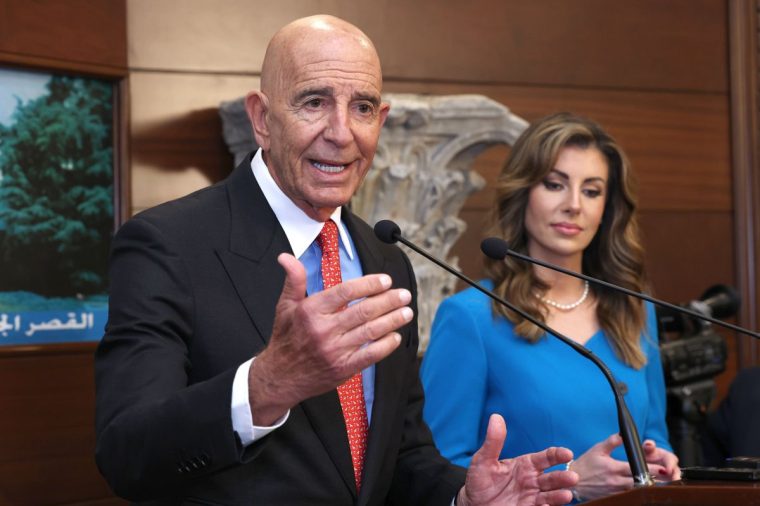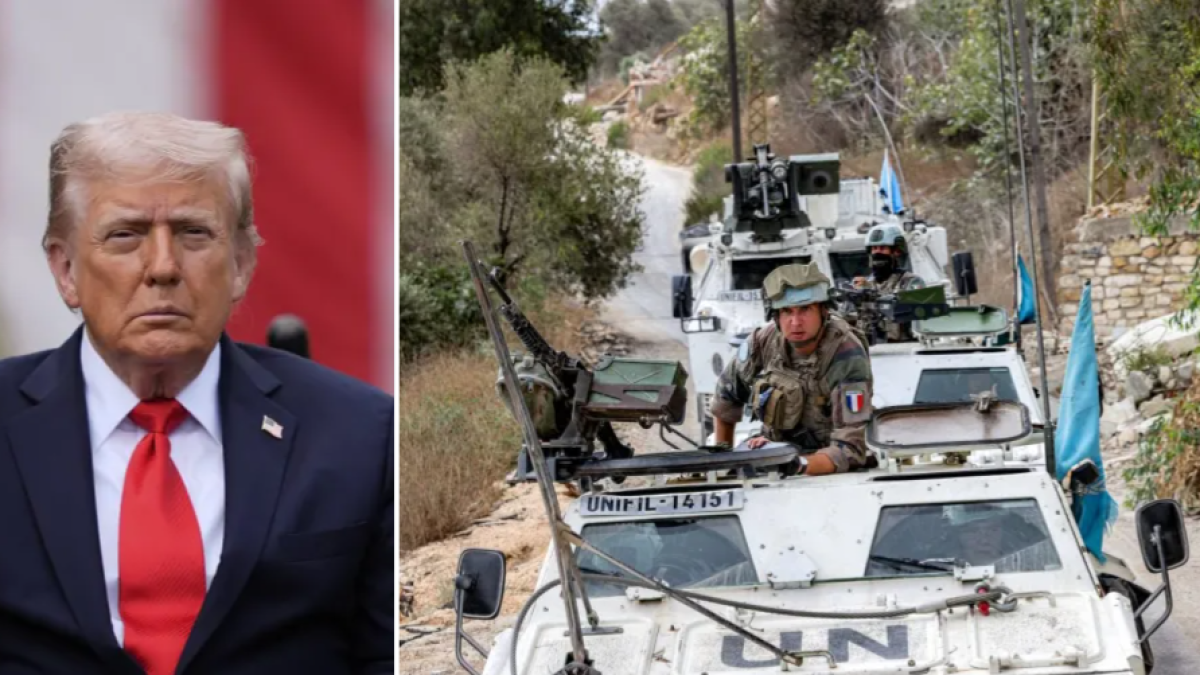When US envoy Thomas Barrack visited Lebanon last month, his trip made headlines – but not for reasons the White House might have hoped.
Barrack calling Lebanese reporters “animalistic” sparked widespread outrage and dominated headlines for days. Yet it wasn’t the only eyebrow-raising episode of the trip.
In Beirut, Barrack floated a plan for an economic zone in southern Lebanon, which he claimed would bring money into local communities.
New FeatureIn ShortQuick Stories. Same trusted journalism.
In true Donald Trump-era fashion, the proposal reflected a basic miscalculation: that deeply rooted political grievances can be dealt with through financial means.
First discussed with Israeli officials in Paris, the plan envisions an industrial buffer zone aimed at preventing Hezbollah’s return to Lebanon’s southern border. Israeli analysts have argued that it could address Israel’s security concerns, without the need to reoccupy Lebanese territory.
The plan would see state-run factories established in the area, physically separated from Israeli communities across the border. Some Lebanese media reports have said that recent Israeli military incursions along the frontier may be intended to lay the groundwork for this “industrial buffer zone”.
Barrack has suggested that the investment for this zone would come from Saudi Arabia and Qatar.
 Tom Barrack, a private equity property investor and friend of Trump’s, is now a special US envoy (Photo: Lebanese Presidency Handout/Anadolu via Getty)An ‘economic zone’ is a non-starter
Tom Barrack, a private equity property investor and friend of Trump’s, is now a special US envoy (Photo: Lebanese Presidency Handout/Anadolu via Getty)An ‘economic zone’ is a non-starter
The proposal would require displacing residents from 27 villages, and the deployment of US troops to police the zone, creating a de facto security corridor. Echoing the warped “Gaza Riviera” idea, it reflects the same Trumpian mindset toward Arab populations.
Experts dismissed the plan in conversations with The i Paper.
For one thing, Lebanon’s authorities and the population at large will not accept any arrangement that involves ceding sovereignty over a large swath of territory. There is simply no political appetite in Lebanon for such a scheme.
Compounding tensions, Israel would reportedly construct surveillance towers along the border and retain access to the zone.
This is unlikely to win Lebanese support or serve as a vehicle for normalisation, and at best reflects American wishful thinking: that better relations between Israel and Arab states can be engineered from above, regardless of local resistance.
“This is American thinking and Israeli thinking, but there is a very different mood in Beirut. There is a consensus in Beirut that this shouldn’t happen,” Michael Young, a senior editor at the Malcolm H Kerr Carnegie Middle East Centre in Beirut, told The i Paper.
 Officials of the United Nations Interim Force in Lebanon with a peacekeeper during a tour in the village of Kfar Kila, near the border with Israel (Photo: Anwar Amro/AFP)
Officials of the United Nations Interim Force in Lebanon with a peacekeeper during a tour in the village of Kfar Kila, near the border with Israel (Photo: Anwar Amro/AFP)
Hezbollah “considers Israel an enemy and it would immediately reject any notion that there can be some form of normalisation with Israel through an economic zone in southern Lebanon”, he added.
Dr Karim Makdisi, an associate professor at the American University of Beirut, told The i Paper: “This proposal reveals the steep decline in the process of US diplomacy. People like Barrack are lightweight, Trump-linked millionaires with little knowledge of the region and who genuinely think they can dictate ill-conceived business ‘incentives’ in the region to compensate for capitulation.”
Sam Heller, a fellow at The Century Foundation, said he doubted that Barrack had thought through the proposal and dismissed the plan as a “half-baked” attempt to bribe Hezbollah into submission.
He described it as “a promise that if these residents of south Lebanon abandon their homes for ever, they can have jobs in Gulf-funded sweatshops”.
The path not taken
Another stumbling block is the US’s declining reputation as a trustworthy broker across the Arab world.
Perceptions of Washington as unreliable and untrustworthy will inevitably grow across the Arab world following the unprecedented Israeli attack on Qatar on Tuesday — particularly given that Qatar exists under the US security umbrella and that Hamas was present in Doha at Washington’s request.
And in southern Lebanon, the local population remains deeply scarred by the 2023-24 Israel-Hezbollah conflict.
“The messages that the United States sent after the war are not necessarily reassuring,” Dr Karim Emile Bitar, a lecturer in Middle East Studies at Sciences Po Paris, told The i Paper.
“Even members of the pro-Western camp in Lebanon have difficulty trusting the United States. This is why I think that any discussion of any economic zone is widely premature,” he added.
Washington’s efforts are likely to be better spent working on a negotiated settlement between Lebanon and Israel — one that does not reduce Lebanon to a position of subservience. Such a strategy offers the only credible path to regional stability.
“This is a policy that will lead nowhere, and I think it is misleading,” said Young.
The belief that peace can be imposed with Israel making zero compromises, and that the Arab world will accept normalisation on Israel’s terms alone, shows the US is in “a land of their own imagination,” he said — one that bears little resemblance to the Middle East as it is.
